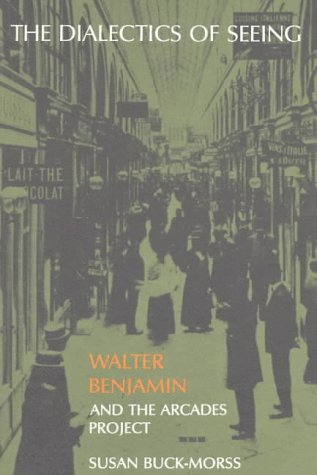Tony Harris: The Legacy of Cornelius Cardew (2013)
Filed under book | Tags: · avant-garde, biography, bourgeoisie, communism, composition, marxism, music, notation, politics

“Cornelius Cardew is an enigma. Depending on which sources one consults he is either an influential and iconic figure of British musical culture or a marginal curiosity, a footnote to a misguided musical phenomenon. He is both praised for his uncompromising commitment to world-changing politics, and mocked for being blindly caught up in a maelstrom of naïve political folly. His works are both widely lauded as landmark achievements of the British avant-garde and ridiculed as an archaic and irrelevant footnote to the established musical culture. Even the events of his death are shrouded in mystery and lack a sense of closure.
As long ago as 1967, Morton Feldman cited Cardew as an influential figure, central to the future of modern music-making. The extent to which Cardew has been a central figure and a force for new ideas in music forms the backbone to this book. Harris demonstrates that Cardew was an original thinker, a charismatic leader, an able facilitator, and a committed activist. He argues that Cardew exerted considerable influence on numerous individuals and groups, but also demonstrates how the composer’s significance has been variously underestimated, undermined and misrepresented.
Cardew’s diverse body of work and activity is here given coherence by its sharing in the values and principles that underpinned the composer’s world view. The apparently disparate and contradictory episodes of Cardew’s career are shown to be fused by a cohesive ‘Cardew aesthetic’ that permeates the man, his politics and his music.”
Publisher Ashgate, 2013
ISBN 140944810X, 9781409448105
228 pages
Reviews: Bruce Coates (Jems, 2013), Virginia Anderson (Music and Letters, 2013), Christopher Hobbs (NABMSA, 2013).
EPUB (updated on 2019-2-27)
Comment (0)Peter Gidal: Materialist Film (1989)
Filed under book | Tags: · abstraction, aesthetics, avant-garde, bourgeoisie, cinema, experimental film, film, film history, ideology, illusion, image, meaning, narrative

“A polemical introduction to the avant-garde and experimental in film (including making and viewing), Materialist Film is a highly original, thought-provoking book.
Thirty-seven short chapters work through a series of concepts which will enable the reader to deal imaginatively with the contradictory issues produced by experimental film. Each concept is explored in conjunction with specific films by Andy Warhol, Malcolm LeGrice, Lis Rhodes, Jean-Luc Goddard, Rose Lowder, Kurt Kren, and others.
Peter Gidal draws on important politico-aesthetic writings, and uses some of his own previously published essays from Undercut, Screen, October, and Millennium Film Journal to undertake this concrete process of working through abstract concepts.”
Publisher Routledge, 1989
ISBN 0415003822, 9780415003827
189 pages
via maxp
Review: Wheeler Winston Dixon (Prairie Schooner, 1990)
PDF (10 MB, updated on 2016-12-24)
Comment (0)Susan Buck-Morss: The Dialectics of Seeing: Walter Benjamin and the Arcades Project (1989–) [English, Spanish]
Filed under book | Tags: · 1800s, advertising, bourgeoisie, city, commodification, critical theory, cultural criticism, fashion, flaneur, history, literary criticism, literature, paris, photography, poetry

“Walter Benjamin‘s magnum opus was a book he did not live to write. In The Dialectics of Seeing, Susan Buck-Morss offers an inventive reconstruction of the Passagen-Werk, or Arcades Project, as it might have taken form.
Working with Benjamin’s vast files of citations and commentary which contain a myriad of historical details from the dawn of consumer culture, Buck-Morss makes visible the conceptual structure that gives these fragments philosophical coherence. She uses images throughout the book to demonstrate that Benjamin took the debris of mass culture seriously as the source of philosophical truth.
The Paris Arcades that so fascinated Benjamin (as they did the Surrealists whose “materialist metaphysics” he admired) were the prototype, the 19th century ‘ur-form’ of the modern shopping mall. Benjamin’s dialectics of seeing demonstrate how to read these consumer dream houses and so many other material objects of the time—from air balloons to women’s fashions, from Baudelaire’s poetry to Grandville’s cartoons—as anticipations of social utopia and, simultaneously, as clues for a radical political critique.
Buck-Morss plots Benjamin’s intellectual orientation on axes running east and west, north and south—Moscow Paris, Berlin-Naples—and shows how such thinking in coordinates can explain his understanding of ‘dialectics at a standstill’. She argues for the continuing relevance of Benjamin’s insights but then allows a set of “afterimages” to have the last word.”
Publisher MIT Press, 1989
Studies in Contemporary German Social Thought Series
ISBN 0262022680
493 pages
Reviews: Shierry Weber Nicholsen (New German Critique, 1990), Robert Tobin (Phil and Lit, 1991), James L. Gussen (Germanic Review, 1992), Erika Berroth (J Germanic Linguistics, 1994), Beste Alpay (Montréal Review, 2011).
Publisher (EN)
The Dialectics of Seeing: Walter Benjamin and the Arcades Project (English, 22 MB, updated on 2019-12-3)
Dialectica de la mirada: Walter Benjamin y el proyecto de los Pasajes (Spanish, trans. Nora Rabotnikof, 1995, updated on 2013-5-2)

